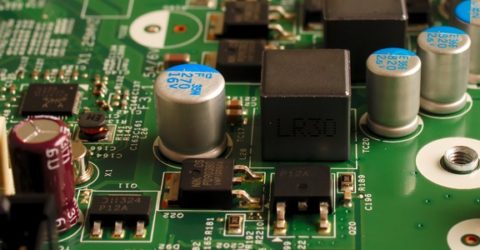How to safely dispose of your old PC
Knowing how to dispose of an old computer safely when it reaches the end of its life can simplify an otherwise fraught process.

Desktop computers are hardy devices, but eventually, even the most fettled and dependable rig reaches the end of the road.
CPUs overheat; hard drives corrupt; power packs fail; motherboards get damaged.
The latter is particularly harmful to a computer’s fortunes, with chipped circuit boards or overheated transistors potentially rendering the device a write-off.
Regardless of whether a PC needs to be replaced due to obsolete hardware, damage or simply wear and tear, the thorny problem of disposal soon arises.
More10 tips to improve your PC’s performance
Knowing how to safely dispose of an old PC is useful, since there are many things you can’t do to make room for a replacement machine…
You can’t…
Bin it. Councils across the UK expressly prohibit the disposal of electrical goods in household waste, and don’t think you can hide it under black sacks full of general detritus.
Throw it in a skip. Skip hire companies won’t accept hazardous waste, including any electrical and electronic equipment (EEE) that contains batteries or has a plug.
Drop it off at a charity shop. Charities rarely accept second-hand computers, since hard drives could harbour hidden nasties and computers are difficult to resell in local shops.
You shouldn’t…
Sell or give it away without formatting the hard drive. There could be personally identifiable information (PII) which may be used to commit fraud or identity theft.
Take it to the tip without checking first. Regional recycling centres may accept home electronics, but smaller local ones often don’t. Check your local council’s website first.
Dispose of working peripherals. If the monitor, keyboard and printer all work, it’s better to retain them than to dispose of them and immediately buy like-for-like replacements.
Best practice
If you’re handy with a screwdriver, consider removing the hard drive before disposing of an old PC.
The hard drive stores all your PII, and a computer’s other components have no memory which could be exploited by unscrupulous individuals.
While the tower is open, check disc drives are empty and remove any fluff or hair that may have crept in through the fan vent.
If you’re planning to leave the hard drive in situ, run two full-format erases. The first may still leave sensitive data fragments which could be reassembled with enough determination.
How to safely dispose of an old PC
Options include returning the computer to its manufacturer (if they support this), asking your local council for a specialist uplift, or finding a dedicated EEE recycling business.
The same companies who purchase smartphones sometimes bid on laptops, though desktop PCs are less commonly accepted due to their size. It’s still worth investigating, though.
There’s a thriving market for second-hand computers on auction sites, and DIY lovers could remove and sell individual components separately, which may fetch more money than selling the PC intact.
Finally, specialist charities accept and refurbish donated PCs before sending them to third-world countries – a nicely philanthropic swansong for a loyal servant.






